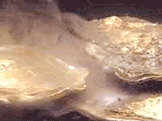|
||
Way DownstreamOn Assateague Island, say it ain’t so, Misty. The National Park Service is threatening to cull th Along Chesapeake Bay, separate reports provide still more evidence that Maryland ought to stick by native oysters rather than planting Asian varieties. The Virginia Institute of Marine Science reports that the native bivalves appear to be genetically adapting to resist Dermo and MSX, the diseases that have wiped them out in recent decades. The Institute also is finding that the Asian varieties are very Throughout Chesapeake Country, the 21-year-old eco-grant-giving Chesapeake Bay Trust has passed a milestone: more than $20 million in grants to help restore Chesapeake Bay. The private nfp has awarded some 7,000 grants — ranging from a few hundred dollars to $200,000 — to groups for watershed restoration and hands-on education. Grants. Much of the Trust’s money comes from the Treasure the Chesapeake license plates you buy … In Anne Arundel County, outgoing executive Janet Owens has signed on with the state to clean up wastewater countywide. The memorandum of understanding document obligates incoming county executive John Leopold to upgrade all seven of Anne Arundel County’s water treatment plants to enhance nutrient removal capability, starting no later than 2011. The price: $100 million, which comes from the state’s Flush Tax … In Washington, a joint audit by inspectors general in the EPA and Agriculture Department said something last week that we Baysiders already knew: that the Bush administration’s lack of commitment and financial support has retarded Chesapeake Bay restoration. Politicians in the Agriculture Department disputed the findings, but the EPA acknowledged shortcomings … Our Creature Feature comes from Texas, where the rich aroma of Thanksgiving turkey still wafts in the air In Plano, north of Dallas, city workers this week were collecting hundreds of gallons of turkey-cooking oil left curbside like garbage. The oil is then donated to a company producing biodiesel fuel used to power just about anything that runs on diesel. |
||
|
|
||
|
© COPYRIGHT 2004 by New Bay Enterprises, Inc. All rights reserved.
|



 e population of ponies made famous by Marguerite Henry’s Misty of Chincoteague, published in 1947, because they’re devouring too much grass on sand dunes and in marshes …
e population of ponies made famous by Marguerite Henry’s Misty of Chincoteague, published in 1947, because they’re devouring too much grass on sand dunes and in marshes … susceptible to a nasty little parasite called Bonamia that could wipe them out by attacking their blood …
susceptible to a nasty little parasite called Bonamia that could wipe them out by attacking their blood …
 of Plano. Those Texans love their turkey fried, heating up a 40-quart deep fryer full of peanut oil and dropping the gobbler in. The method means a whole lot of oil left over from cooking the big birds.
of Plano. Those Texans love their turkey fried, heating up a 40-quart deep fryer full of peanut oil and dropping the gobbler in. The method means a whole lot of oil left over from cooking the big birds.